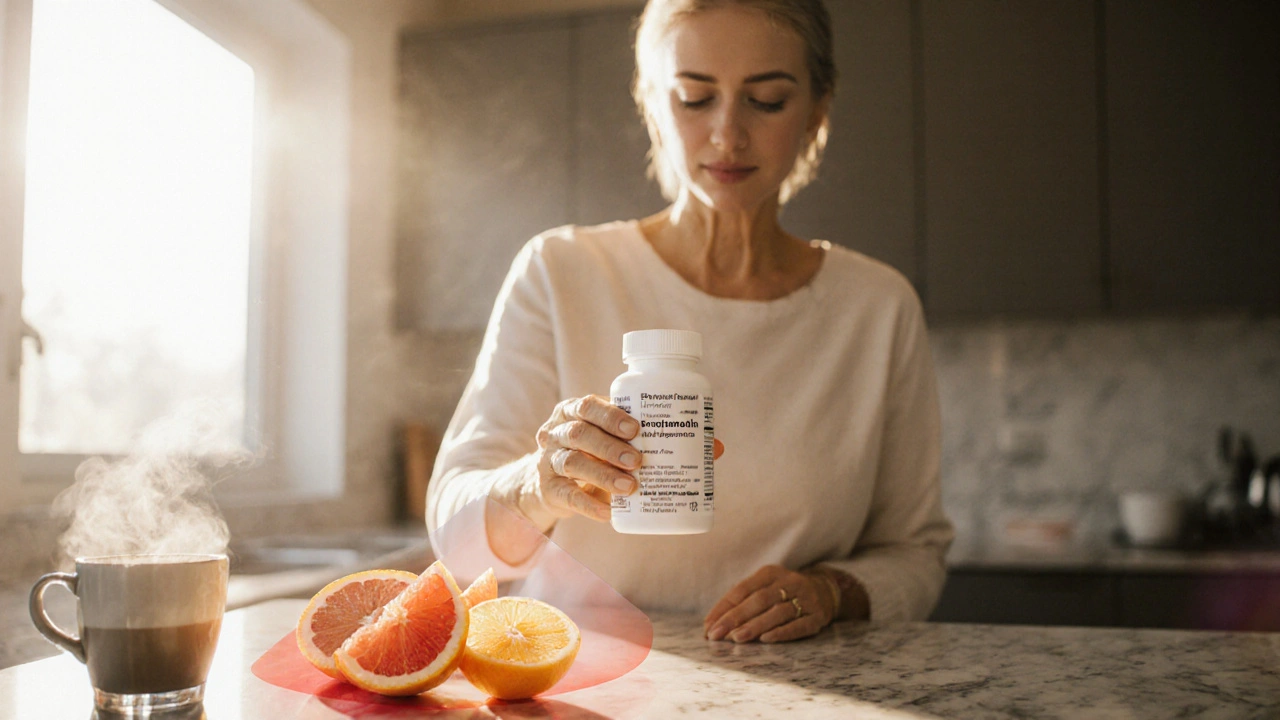Darifenacin Drug Interactions: Quick Guide for Patients
Darifenacin is a prescription pill used to calm an overactive bladder. It works by blocking a chemical called acetylcholine, which tells the bladder to contract. While it helps many people sleep through the night, it can also get into a tug‑of‑war with other medicines or everyday substances. Knowing the main culprits can keep side effects at bay and make the drug work better for you.
Common Prescription Interactions
Most drug‑drug clashes with darifenacin happen because it’s broken down in the liver by an enzyme named CYP3A4. Anything that slows down this enzyme can cause darifenacin levels to climb, leading to dry mouth, constipation, or even more serious heart rhythm changes. Typical CYP3A4 blockers include:
- Antifungal drugs such as ketoconazole or itraconazole
- Some antibiotics like erythromycin and clarithromycin
- HIV medicines – especially protease inhibitors like ritonavir
- Bronchodilators such as golimumab (rare, but reported)
If you’re on one of these, your doctor might lower the darifenacin dose or pick a different bladder medication. On the flip side, drugs that speed up CYP3A4 – for example, rifampin (a TB drug) or the herbal supplement St. John’s wort – can zap darifenacin out of your system too fast, making it less effective.
Another group to watch are other anticholinergic agents. Combining darifenacin with meds for allergies (like diphenhydramine), Parkinson’s disease (like benztropine), or even some sleep aids can pile up anticholinergic side effects. You might notice blurry vision, confusion, or a pounding dry mouth. If you already take an anticholinergic, ask your doctor whether you need both or if one can be swapped.
Everyday Substances to Watch
It’s not just prescription pills. Over‑the‑counter products and foods can tip the balance, too. Antacids that contain aluminum or magnesium can slightly reduce darifenacin absorption, though the effect isn’t huge. Still, taking the bladder pill at least two hours apart from an antacid is a safe rule.
Alcohol doesn’t directly change darifenacin metabolism, but it can worsen dizziness and low blood pressure, especially if you’re already feeling those from the drug. A couple of drinks won’t kill you, but binge drinking can raise the risk of fainting.
Finally, keep an eye on herbal teas and supplements that claim to “relax the bladder.” Ingredients like pumpkin seed extract or soy isoflavones haven’t been studied closely with darifenacin, so they could either boost the effect or block it. The safest move is to discuss any supplement with your pharmacist before adding it to your routine.
In short, the biggest red flags are other CYP3A4 blockers, drugs that share anticholinergic activity, and anything that might boost or cut the drug’s level in your blood. The easiest way to stay clear is to keep an up‑to‑date list of everything you take – prescription, OTC, and supplements – and share it at each doctor visit.
When you start a new medication, ask the pharmacist: “Does this affect darifenacin?” If the answer is yes, they’ll tell you whether you need a dose tweak. And if you ever feel unusually constipated, have a racing heart, or notice vision changes, call your doctor right away. A quick check can prevent a small problem from turning into a big one.
Remember, darifenacin works best when you give it a clean environment. A little vigilance, a solid medication list, and open chats with your healthcare team will keep your bladder under control without unwanted surprises.

Darifenacin Interactions - Which Medications to Avoid
Learn which drugs and foods can clash with Darifenacin, how these interactions happen, and practical steps to stay safe while treating overactive bladder.
